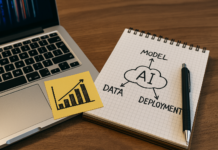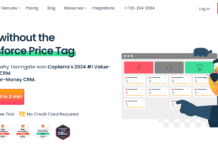Why the Trend of Startups in 2025 Matters
Entrepreneurship is constantly evolving, and understanding the trend of startups is essential for anyone interested in building, investing in, or supporting new businesses. Startups have always been shaped by market needs, technology shifts, and cultural transformations, but the landscape in 2025 promises to be more dynamic than ever. With global markets adjusting to technological breakthroughs, environmental priorities, and changing consumer behavior, the trend of startups in this period reflects a combination of innovation, resilience, and purpose.
Startups play a unique role in the global economy. Unlike traditional businesses that typically pursue stability and incremental growth, startups aim for rapid scalability and disruption. They are designed to challenge existing systems, create new industries, and respond quickly to emerging challenges. Observing the trend of startups in 2025 helps entrepreneurs and investors anticipate where opportunities are rising and where risks must be managed. By studying these patterns, one can see how entire industries are being reshaped.
One of the defining aspects of the trend of startups is the integration of advanced technology into almost every sector. Artificial intelligence, blockchain, and automation are no longer futuristic concepts; they are practical tools shaping industries from healthcare and finance to logistics and entertainment. Startups are often the first to adopt and apply these technologies because they can innovate without the limitations of legacy systems. This agility allows them to lead markets rather than follow them.
Another critical element of the trend of startups is the increasing importance of sustainability. Consumers, governments, and investors are demanding more environmentally responsible practices, and startups are in a strong position to deliver. From renewable energy to eco-friendly consumer products, new ventures are aligning profitability with sustainability. This combination is not just a trend but a necessity, as businesses that fail to address environmental concerns risk losing relevance in the coming years.
Healthcare is also a sector where the trend of startups is especially significant in 2025. With telemedicine, personalized treatment, and biotechnology advancing rapidly, startups are redefining how people access and experience healthcare. Mental health platforms, wellness technologies, and preventive care solutions are attracting both consumer interest and investor support. These developments show how startups are solving global challenges while creating profitable opportunities.
The trend of startups is also shaped by changing work and lifestyle patterns. Remote work, digital nomadism, and the rise of the creator economy have opened new spaces for startups. Businesses offering services for distributed teams, online education, and digital collaboration are growing quickly. The ability to adapt to these shifts is central to the success of startups in 2025, as they align with how people now live and work.
Funding dynamics are another part of the story. The trend of startups in 2025 reflects a diversification of investment sources. While venture capital remains vital, crowdfunding, angel investor networks, and even decentralized finance platforms are gaining traction. This broader range of funding opportunities makes it easier for entrepreneurs to launch and scale ventures, but it also creates more competition for visibility and credibility in a crowded space.
Regional differences also play a role in shaping the global trend of startups. In developed economies, startups continue to push boundaries with advanced technologies and large-scale innovation. In emerging markets, the focus is often on practical solutions to everyday challenges such as financial inclusion, education, and healthcare access. Both contexts highlight the versatility of startups and how they adapt to different economic realities while sharing the same ambition of growth and impact.
It is also important to note the cultural dimension of the trend of startups. In many societies, entrepreneurship is no longer seen as a risky alternative to traditional employment but as a viable and even desirable career path. This shift has encouraged younger generations to pursue innovation earlier, creating a more vibrant startup ecosystem. With global connectivity and digital platforms, ideas can spread faster, allowing startups to reach international markets almost immediately.
Ultimately, the trend of startups in 2025 is about more than business opportunities. It reflects how societies are prioritizing innovation, sustainability, and inclusion. Startups are not only economic engines but also drivers of social change. They show how creativity, technology, and determination can create solutions for global problems while building profitable ventures. For entrepreneurs, understanding these trends is crucial to positioning themselves effectively. For investors and policymakers, recognizing them provides insights into how to support ecosystems that foster growth.
In summary, the trend of startups in 2025 highlights a future shaped by innovation, sustainability, health, technology, and cultural change. Startups continue to be the laboratories of the economy, experimenting with new models and pushing industries forward. By paying attention to these developments, entrepreneurs and investors can align themselves with opportunities that will define the next decade. The startup ecosystem in 2025 is not just about surviving in a competitive market it is about thriving by anticipating needs, embracing innovation, and committing to long-term impact.
Observing the trend of startups in 2025 helps entrepreneurs and investors anticipate where opportunities are rising and where risks must be managed. Reliable resources such as Crunchbase provide valuable insights into startup activity, funding data, and global industry performance, making it easier to evaluate emerging opportunities.
Technology Startups Driving 2025
Artificial Intelligence Expansion
A major part of the trend of startups in 2025 is the rapid adoption of artificial intelligence. Startups are building AI-driven tools for industries such as healthcare, finance, logistics, and education. These solutions range from predictive analytics to customer service automation and personalized product recommendations. The integration of AI helps startups scale faster while offering greater value to customers. By embracing AI, startups demonstrate how innovation can be both profitable and transformative.
Blockchain Beyond Finance
Blockchain is no longer limited to cryptocurrency. In 2025, the trend of startups shows that this technology is expanding into areas such as supply chain management, identity verification, and digital contracts. Startups are leveraging blockchain to improve transparency, security, and trust in multiple industries. By creating decentralized systems, these businesses reduce fraud, streamline operations, and offer customers greater control over their data.
Cybersecurity Priorities
As digital transformation accelerates, cybersecurity becomes a critical issue. Startups focusing on cybersecurity are a central part of the trend of startups in 2025. From protecting personal data to securing large-scale business operations, these ventures offer services and tools to combat increasingly sophisticated cyber threats. Investors are paying close attention to cybersecurity startups, knowing that security solutions are not optional but essential for digital businesses.
Quantum Computing Startups
Although still in its early stages, quantum computing is beginning to influence the trend of startups. By 2025, startups exploring quantum computing applications are emerging in fields like cryptography, pharmaceuticals, and financial modeling. These ventures may not yet be mainstream, but they demonstrate the forward-looking spirit of startups. Quantum technologies have the potential to redefine industries, and startups are at the forefront of experimenting with these possibilities.
Healthcare and Biotech Startups
Telemedicine Growth
The healthcare industry has experienced major transformations, and telemedicine is one of the strongest reflections of the trend of startups in 2025. Startups offering online consultations, remote diagnostics, and digital health records are improving access to care, particularly in underserved areas. Telemedicine not only reduces costs but also increases convenience for patients, making it a sustainable business model for the future.
Personalized Medicine
Advances in biotechnology and data analysis have enabled startups to move toward personalized medicine. The trend of startups in this sector includes developing treatments and health plans tailored to individual genetic profiles. By providing customized care, these startups increase treatment effectiveness and patient satisfaction. Personalized medicine represents a significant shift from one-size-fits-all healthcare to targeted, data-driven solutions.
Biotech Innovations
Biotechnology is another field where the trend of startups is clear. Entrepreneurs are creating solutions in areas like regenerative medicine, bio-engineered food, and vaccine development. These startups push the boundaries of science and address global health challenges. With increasing investment and public interest, biotech startups are positioned to play a crucial role in the medical and food industries of the future.
Mental Health Platforms
Mental health has gained attention worldwide, and startups are responding with innovative solutions. In 2025, the trend of startups shows strong growth in digital platforms offering therapy, mindfulness, and emotional support. These platforms make mental health resources more accessible, affordable, and stigma-free. By integrating technology with professional expertise, startups in this sector are addressing one of society’s most pressing needs.
Green and Sustainable Startup Trends
Renewable Energy Solutions
One of the strongest elements in the trend of startups is the shift toward renewable energy. By 2025, startups are leading innovations in solar power, wind energy, and biofuels. These ventures not only reduce dependence on fossil fuels but also provide affordable energy solutions to communities worldwide. Startups in this sector are gaining both consumer trust and government support as sustainability becomes a global priority.
Eco-Friendly Consumer Products
Consumers are increasingly demanding sustainable alternatives in everyday life. Startups are answering this demand by creating eco-friendly packaging, clothing, and personal care products. The trend of startups in this area shows that businesses combining sustainability with convenience can capture strong loyalty. Eco-conscious buyers are willing to pay more for responsible products, making this sector both profitable and impactful.
Circular Economy Startups
The circular economy is gaining momentum as startups design solutions that reduce waste and maximize resource use. In 2025, startups focusing on recycling, upcycling, and reuse are central to the trend of startups. These businesses are turning waste into new products and extending the lifecycle of goods. This approach not only helps the environment but also appeals to customers who value innovation with purpose.
Green Transport Solutions
Transportation is a major contributor to emissions, and startups are offering alternatives through electric vehicles, bike-sharing platforms, and sustainable logistics. The trend of startups in 2025 highlights how mobility solutions are evolving to meet environmental goals. These ventures provide practical benefits for urban living while aligning with global sustainability initiatives.
FinTech and Financial Inclusion
Mobile Banking Innovations
Financial access is expanding globally, and startups are driving this change through mobile banking. The trend of startups in 2025 shows that mobile-first solutions allow unbanked populations to access financial services. Startups offering mobile accounts, payments, and microloans are bridging economic gaps and empowering individuals in emerging markets.
Cryptocurrency and Web3
Cryptocurrency and decentralized technologies remain a major part of the trend of startups. In 2025, blockchain-based startups are creating platforms for digital payments, asset trading, and decentralized finance (DeFi). These ventures challenge traditional banking systems by offering faster, cheaper, and more secure solutions. Their growth demonstrates how startups redefine financial infrastructure.
Investment Tech Platforms
Investment technology, or InvestTech, is reshaping how individuals manage wealth. Startups are building apps that allow users to invest small amounts, access robo-advisors, and diversify portfolios. The trend of startups here is about democratizing finance, making it accessible to people who previously had limited investment options. These tools are especially popular among younger generations.
InsurTech Expansion
Insurance has long been seen as a slow-moving industry, but startups are changing this perception. The trend of startups in 2025 includes InsurTech ventures that use AI and data analytics to personalize coverage and streamline claims. These startups offer transparency, affordability, and speed, creating a better experience for customers while disrupting an established sector.
E-Commerce and Retail Transformation
Social Commerce Platforms
The trend of startups in 2025 highlights how e-commerce is merging with social media. Social commerce platforms allow consumers to discover, share, and purchase products directly within social networks. Startups in this space focus on influencer-driven marketing, peer recommendations, and interactive shopping experiences. This model leverages trust and engagement, making it one of the fastest-growing areas of retail.
AR and VR Shopping
Augmented reality and virtual reality are reshaping the shopping experience. The trend of startups includes ventures that let consumers try on clothes virtually, visualize furniture in their homes, or explore immersive digital stores. By 2025, these technologies are making online shopping more interactive and reducing return rates, which benefits both businesses and customers.
Direct-to-Consumer Models
Startups are increasingly bypassing traditional retail channels and adopting direct-to-consumer (D2C) strategies. The trend of startups here emphasizes building stronger connections with customers through personalized service, exclusive branding, and online storefronts. D2C models allow startups to retain higher margins and control customer relationships more effectively.
Subscription Economy Growth
Subscription-based models continue to dominate retail innovation. From meal kits and beauty boxes to streaming and gaming services, the trend of startups in 2025 shows strong expansion in subscription services. Startups benefit from predictable recurring revenue while offering consumers convenience and tailored experiences. This model strengthens customer loyalty and long-term profitability.
Education and EdTech Startups
Online Learning Platforms
The demand for flexible and accessible education remains strong, and startups are leading the way with online learning platforms. The trend of startups includes digital classrooms, exam preparation apps, and global e-learning marketplaces. These platforms make education available across borders and to people of all ages.
AI-Powered Education Tools
Artificial intelligence is revolutionizing education by personalizing learning paths. Startups are creating AI-powered platforms that adapt to student progress, provide instant feedback, and suggest resources. The trend of startups here highlights how technology enhances engagement and makes education more effective for diverse learners.
Lifelong Learning Solutions
Education is no longer limited to schools and universities. Startups are offering platforms for lifelong learning, catering to professionals seeking career growth or skill updates. The trend of startups shows that demand for continuous learning will keep growing in 2025 as industries evolve and require new expertise.
Skill Development for Future Jobs
Startups are also addressing the need for specialized training in future industries like data science, renewable energy, and biotechnology. The trend of startups in this area focuses on equipping people with the skills required for emerging jobs. These startups bridge the gap between academic education and workplace demands.
Logistics and Mobility Innovations
Last-Mile Delivery Evolution
The rise of e-commerce has made last-mile delivery a focal point in the trend of startups. In 2025, startups are optimizing delivery through smart routing, electric vehicles, and partnerships with local couriers. These solutions reduce costs and improve speed, ensuring better customer satisfaction. Efficient last-mile delivery also supports sustainability goals by lowering emissions.
Drone Delivery Startups
Drone technology is transitioning from experimentation to practical application. The trend of startups includes ventures that use drones for food delivery, medical supply transport, and rural logistics. By 2025, drone deliveries are improving accessibility and reducing reliance on traditional transport systems, especially in remote or hard-to-reach areas.
Autonomous Mobility Solutions
Autonomous vehicles are reshaping how people and goods move. The trend of startups features self-driving taxis, shuttle services, and freight solutions that reduce labor costs and improve safety. Startups in this field face regulatory challenges but represent some of the most ambitious innovations in mobility.
Smart Supply Chains
Supply chain disruptions have highlighted the need for smarter systems. Startups are using blockchain, AI, and IoT to create transparent, efficient, and resilient supply chains. The trend of startups in 2025 emphasizes risk management and efficiency, helping businesses stay competitive in volatile markets.
Entertainment and Creative Startups
Gaming and Esports Expansion
The gaming industry continues to grow, and esports has become a global phenomenon. The trend of startups includes ventures in game development, tournament hosting, and gaming hardware. Startups in this space are building communities while tapping into a multibillion-dollar market.
Streaming Content Platforms
Streaming remains a central part of modern entertainment. Startups are launching platforms for niche content such as documentaries, educational videos, or independent films. The trend of startups in streaming emphasizes personalization and community-driven experiences, offering alternatives to mainstream platforms.
Creator Economy Startups
The creator economy has expanded opportunities for independent artists, writers, and influencers. Startups are developing tools that help creators monetize their work through subscriptions, digital marketplaces, and audience engagement platforms. The trend of startups in 2025 highlights how creative individuals can build sustainable businesses.
Virtual and Hybrid Events
As people adapt to new ways of connecting, startups are innovating in virtual and hybrid events. Platforms offering interactive conferences, concerts, and exhibitions are central to the trend of startups. These solutions reduce geographic barriers while enhancing audience participation.
Real Estate and Smart Living Startups
Smart Home Technologies
The trend of startups in 2025 shows rapid growth in smart home solutions. Startups are designing devices and systems that improve security, energy efficiency, and convenience. From automated lighting to AI-powered home assistants, these innovations enhance modern living while addressing sustainability concerns.
PropTech Innovations
Property technology, or PropTech, is transforming how real estate is bought, sold, and managed. Startups are building platforms for virtual property tours, AI-driven price evaluations, and streamlined rental management. The trend of startups here emphasizes transparency, speed, and accessibility in an industry traditionally known for complexity.
Affordable Housing Solutions
Housing affordability remains a global challenge, creating opportunities for startups to innovate. By 2025, the trend of startups includes modular housing, cost-efficient construction methods, and shared living spaces. These solutions not only provide shelter but also address urban population growth and inequality.
Co-Living and Remote Work Spaces
With the rise of remote work, startups are reimagining shared spaces. Co-living hubs and flexible workspaces are part of the trend of startups that focus on collaboration and community. These solutions provide affordable housing and work environments tailored to freelancers, digital nomads, and startups themselves.
Social Impact and Purpose-Driven Startups
Health Equity Startups
Startups addressing healthcare accessibility are central to the trend of startups in 2025. These ventures provide affordable clinics, telehealth platforms, and preventive care services for underserved populations. By improving equity, they combine business success with social responsibility.
Inclusive Employment Ventures
Diversity and inclusion are no longer optional but essential. Startups are developing platforms that connect marginalized groups to job opportunities, training, and mentorship. The trend of startups in this area highlights how entrepreneurship can reduce inequality and strengthen communities.
Educational Access Solutions
Education remains one of the most powerful tools for social change. Startups are expanding access by creating affordable digital platforms and localized learning programs. The trend of startups shows strong demand for initiatives that bridge educational gaps in both developed and emerging economies.
Environmental Protection Startups
Climate change concerns continue to drive innovation. Startups are creating technologies for carbon reduction, sustainable farming, and waste management. The trend of startups here reflects how environmental impact is now a core consideration for business models seeking long-term relevance.
Regional Startup Trends in 2025
Startups in North America
North America continues to dominate the global startup ecosystem. The trend of startups in 2025 shows strong growth in artificial intelligence, FinTech, and clean energy. With access to venture capital, accelerators, and research institutions, the region remains a hub for innovation. Startups in Silicon Valley, New York, and Toronto are driving global advancements while attracting international talent.
Startups in Europe
Europe is gaining ground with its focus on sustainability and technology. The trend of startups here highlights sectors such as green energy, healthcare, and mobility. Cities like Berlin, Stockholm, and London are recognized as startup hubs due to their supportive ecosystems and skilled workforce. European startups often emphasize regulatory compliance and ethical innovation, setting them apart in the global landscape.
Startups in Asia-Pacific
The Asia-Pacific region is witnessing explosive startup growth. The trend of startups in 2025 shows expansion in e-commerce, logistics, and mobile-first solutions. Countries like India, Singapore, and China are home to rapidly scaling ventures that serve large consumer markets. The region benefits from a young population, digital adoption, and increasing investor interest.
Startups in Emerging Markets
Emerging markets are becoming crucial players in the trend of startups. In Africa, Latin America, and parts of Southeast Asia, startups focus on solving urgent issues such as financial inclusion, healthcare access, and education. These ventures often combine profitability with social impact, proving that startups in developing regions can create scalable and sustainable models.
Startup Funding Landscape in 2025
Venture Capital Evolution
Venture capital remains a major driver of startup growth, but its landscape is evolving. The trend of startups in 2025 shows that VCs are focusing more on sustainable, impact-driven, and technology-enabled ventures. Startups must demonstrate not only profitability but also long-term relevance to attract funding.
Angel Investor Networks
Angel investors play an increasingly important role by supporting early-stage startups. In 2025, the trend of startups highlights a rise in angel investor networks that provide mentorship along with capital. These investors help founders refine strategies while preparing them for larger funding rounds.
Crowdfunding Innovations
Crowdfunding platforms are making it easier for startups to raise money directly from the public. The trend of startups shows that entrepreneurs can validate demand while securing funding through community-driven campaigns. This model democratizes investment and builds early customer loyalty.
Government and Institutional Support
Governments and institutions are investing more in entrepreneurship through grants, subsidies, and incubators. The trend of startups in 2025 reflects stronger collaboration between public and private sectors to foster innovation. Such support reduces risks for founders and accelerates growth across industries.
Challenges for Startups in 2025
Market Competition
The trend of startups in 2025 reveals an intensely competitive environment. With more entrepreneurs entering the market, standing out requires a clear value proposition and innovative strategies. Startups must balance differentiation with affordability to capture loyal customers while competing against both new entrants and established corporations.
Regulatory Pressures
As startups disrupt traditional industries, they face growing regulatory challenges. The trend of startups shows that governments are tightening rules around data protection, financial compliance, and environmental standards. Startups must adapt quickly to these regulations without sacrificing agility or innovation, which can be difficult for lean teams.
Talent Acquisition
Attracting and retaining skilled employees remains one of the toughest hurdles. The trend of startups in 2025 highlights the global demand for expertise in areas such as AI, cybersecurity, and biotechnology. Startups often struggle to compete with large companies on salaries, but they can win talent by offering flexibility, equity, and purpose-driven work environments.
Economic Uncertainty
Global economic instability also impacts the startup landscape. Inflation, interest rates, and market fluctuations can reduce investor confidence. The trend of startups here emphasizes the importance of financial discipline and adaptability. Startups that manage resources efficiently and diversify revenue streams are more likely to survive downturns.
Building a Future-Proof Startup
Aligning with Global Trends
The trend of startups in 2025 proves that alignment with global shifts such as sustainability, digitalization, and inclusion is essential. Startups that ignore these trends risk becoming irrelevant. Future-proof ventures adapt strategies to reflect broader societal and economic priorities.
Leveraging Technology
Technology remains the backbone of future-proof startups. From cloud computing to artificial intelligence, leveraging digital tools allows startups to scale rapidly and remain competitive. The trend of startups shows that technology adoption is no longer optional but necessary for survival and success.
Balancing Profit and Purpose
Startups must move beyond short-term financial gains. The trend of startups demonstrates that modern consumers and investors favor companies that balance profit with social or environmental purpose. Embedding impact into the business model builds trust, resilience, and long-term relevance.
Ensuring Long-Term Relevance
Adaptability is the ultimate strength of successful startups. The trend of startups in 2025 makes it clear that relevance is not static; it must be renewed continuously. Monitoring market changes, listening to customers, and evolving business strategies are vital for startups that want to thrive over decades.
Frequently Asked Questions About the Trend of Startups
1. What is meant by the trend of startups?
The trend of startups refers to the patterns, innovations, and business models shaping how new companies emerge and grow. In 2025, these trends focus on technology, sustainability, healthcare, and financial inclusion. Observing the trend of startups helps entrepreneurs and investors understand which industries are gaining momentum and how to align their efforts with future opportunities.
2. Which industries will lead the trend of startups in 2025?
Technology-driven industries such as artificial intelligence, blockchain, and cybersecurity continue to dominate. At the same time, healthcare startups focusing on telemedicine and personalized medicine are expanding rapidly. Green energy, financial technology, and education technology are also central to the trend of startups in 2025. These industries combine profitability with long-term relevance.
3. How is sustainability influencing the trend of startups?
Sustainability is one of the strongest forces shaping entrepreneurship today. Startups are focusing on renewable energy, eco-friendly products, and circular economy models. The trend of startups shows that consumers and investors prefer businesses that balance profit with environmental responsibility. Sustainable startups not only gain market share but also future-proof their operations.
4. How do startups secure funding in 2025?
The funding landscape is diversifying. Venture capital remains important, but startups now also rely on angel investors, crowdfunding, and government support. The trend of startups highlights how funding sources are expanding, giving more entrepreneurs access to capital. At the same time, competition for investment is intense, requiring clear strategies and strong value propositions.
5. What challenges are startups expected to face?
Despite opportunities, the trend of startups in 2025 reveals ongoing challenges. Startups face strong competition, regulatory pressures, and economic instability. Attracting talent in high-demand industries is another difficulty. Startups that succeed will be those that adapt quickly, manage resources efficiently, and align their models with global priorities.
6. Can startups in emerging markets compete globally?
Yes. The trend of startups shows that emerging markets are producing globally competitive ventures. Startups in Africa, Latin America, and Southeast Asia are addressing local challenges such as healthcare access and financial inclusion while building scalable models. Many of these ventures are gaining international recognition, proving that innovation is not limited to developed economies.
7. How can entrepreneurs prepare for the future of startups?
Entrepreneurs should focus on adaptability, technology adoption, and sustainability. The trend of startups in 2025 indicates that future-proof ventures are those aligned with global shifts. Entrepreneurs must monitor consumer behavior, invest in digital tools, and balance profitability with social impact to stay competitive.
Conclusion: The Future Defined by the Trend of Startups
The startup ecosystem in 2025 reflects a world undergoing rapid transformation. The trend of startups demonstrates that innovation, sustainability, and adaptability are no longer optional but essential. Startups continue to redefine industries by embracing technology, solving global challenges, and creating value for diverse communities. They are not just small businesses; they are engines of change that shape economies and societies.
One of the most striking aspects of the trend of startups is the rise of technology-driven solutions. Artificial intelligence, blockchain, and automation are expanding into every industry, creating opportunities for ventures to scale quickly. These technologies empower startups to compete globally, even when resources are limited. Their adoption reflects the entrepreneurial spirit of innovation and disruption.
Sustainability is equally critical. The trend of startups shows that businesses addressing environmental concerns are attracting both consumer loyalty and investor confidence. From renewable energy to eco-friendly products, startups are proving that profitability and responsibility can go hand in hand. This alignment with global priorities ensures long-term survival and relevance.
Healthcare and education are also at the forefront. The trend of startups highlights how telemedicine, biotechnology, and digital learning platforms are making essential services more accessible. These ventures demonstrate how startups can improve lives while building sustainable businesses. By bridging gaps in healthcare and education, startups create both social and economic value.
The funding landscape is evolving, making entrepreneurship more accessible. Startups can now secure capital through venture capital, angel investors, crowdfunding, or government programs. While competition is growing, the trend of startups shows that diverse funding opportunities allow more entrepreneurs to bring their ideas to life.
Of course, challenges remain. Intense competition, economic uncertainty, and regulatory pressures test the resilience of startups. Yet, these challenges also drive creativity and adaptability. Startups that focus on resource efficiency, strong leadership, and strategic alignment will not only survive but thrive.
Ultimately, the trend of startups in 2025 is about building businesses that are innovative, sustainable, and globally relevant. Entrepreneurs who align with these trends are well-positioned to succeed in an uncertain but opportunity-filled future. Startups are not just part of the economy they are shaping its direction.
For those who want to explore deeper insights into entrepreneurship and innovation, Startupik offers expert guides, case studies, and resources. From analyzing the trend of startups to exploring funding strategies and scaling models, Startupik provides valuable knowledge to help entrepreneurs turn vision into reality.
















































